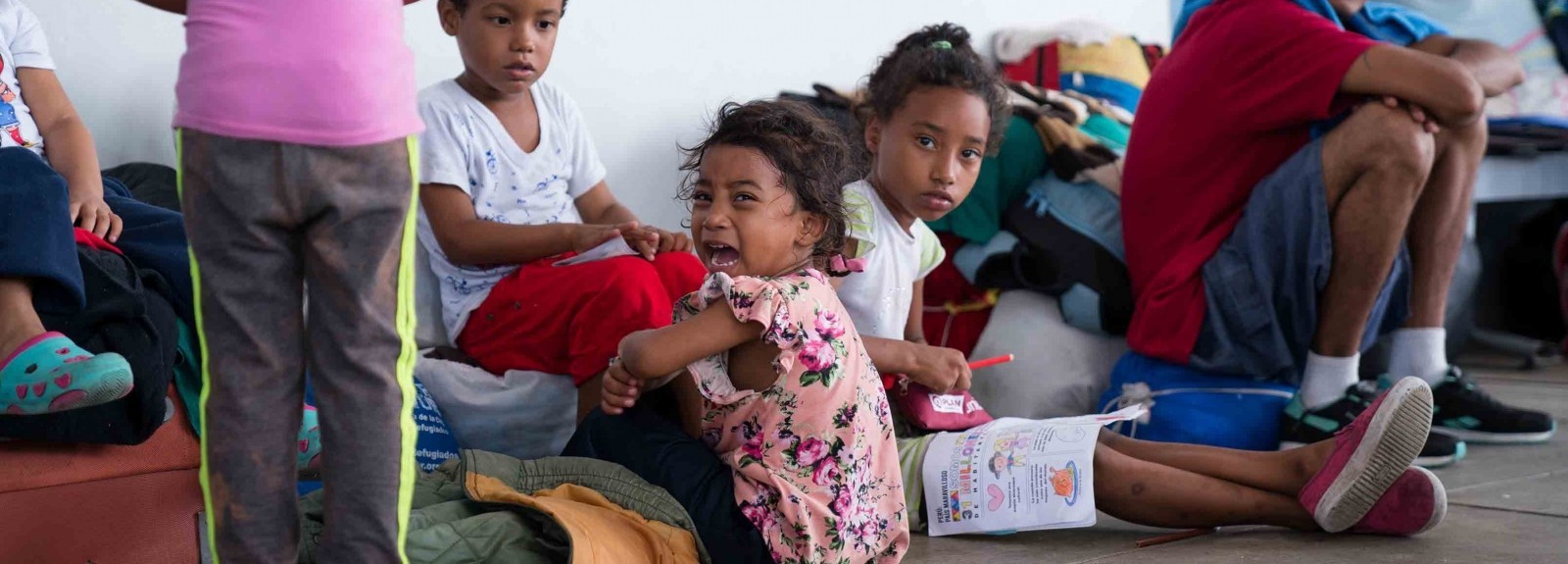During the past three months, we have taken precautions like staying home, practicing social distancing, wearing masks and washing hands to help lower the transmission of the novel coronavirus and save lives. In the United States, many experts believe these efforts have flattened the curve enough to lessen restrictions and reopen more businesses. Despite many challenges, we have passed the first hurdle of this global pandemic.
But many developing countries and vulnerable communities are just getting started, and the coronavirus presents even greater challenges to their health and survival. As we continue to pray for God’s people around the world, here are 6 challenges our global neighbors face in staying safe from COVID-19 — and how you can help.
1. You can’t wash your hands if you don’t have water
Drought. Distance. Contaminated water sources. These are all challenges millions of families must cope with in the communities we serve. Handwashing is a highly effective way to protect yourself from coronavirus — but when the rains have not come, the water is too far away or the water sources are not clean, families cannot exercise handwashing as a critical first line of defense against the spread of disease.
Around the world, you provide rainwater cisterns, wells, sanitation systems and Personal Care Kits for families to practice good hygiene and stay healthy.
2. You can’t protect yourself and others without trustworthy information
Even in the United States, misinformation about the coronavirus is rampant. Thankfully, we have infectious disease experts, along with systems of doctors and public health officials, working tirelessly to update us with new and accurate information on the symptoms of the coronavirus and what to do to stay safe. But the same is not true in poor communities in Honduras or Indonesia, for example. There, families don’t have access to reliable information, if they have any at all, about this virus and how to protect their families.
You help us activate our trusted partners on the ground — both on foot and leveraging communication platforms that are normally used to spread the word about coffee farming practices or child nutrition — to get out into the communities and give your neighbors the information they need to stay healthy.
3. Not everyone can practice social distancing
Some families live in tight quarters in refugee camps, where 6 feet of social distancing is physically impossible. Others simply can’t feed their families unless they ride a crowded bus to work or sell their wares in a busy market. If they can’t work, their children can’t eat.
You are providing face masks, soap, hand sanitizer and Personal Care Kits to help families maintain hygiene and create a barrier against contagious droplets. In regions where businesses have closed and work has slowed, you are feeding families through emergency food distribution.
4. You can’t get tested if there are no medical clinics or supplies
In remote regions, a trip to the health center may require a long and arduous journey. Even if you can make such a trip, there’s very little chance you’ll be tested — testing supplies, not to mention the capacity for processing the tests, are far below demand. Testing is a crucial part of combatting coronavirus so that families can take appropriate measures to quarantine to protect their households and communities. But if there is nowhere to be tested, efforts to conduct contact tracing are diminished, and the virus will continue to spread unchecked.
You help us equip our grassroots Christian Health Association partners with the critical information, resources and protective equipment they need to treat patients with symptoms of COVID-19.
Stop the spread of coronavirus
Your gift will help save lives.


